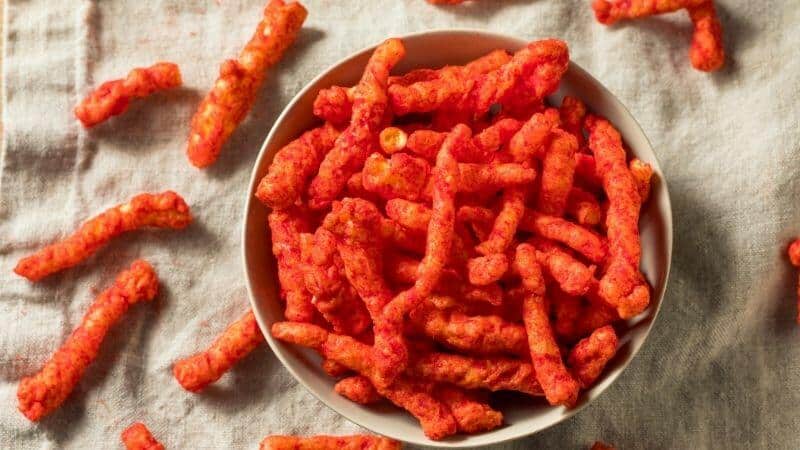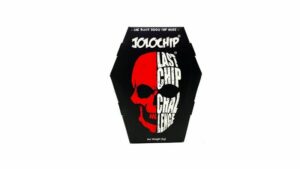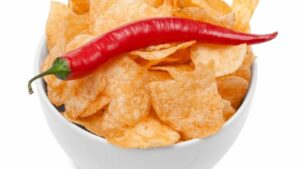With their addictive crunch and spicy flavor, hot chips can be hard to resist. But are these tempting snacks actually unhealthy?
While hot chips aren’t the most nutritious choice, eating them in moderation can be fine. The keys are paying attention to portion size, ingredients, and frequency.
Some potential downsides of overdoing hot chips:
- Weight gain from high calories
- Increased blood pressure from excess sodium
- Lack of vitamins and minerals
But by choosing baked over fried, watching your portions, and pairing with healthier foods, you can keep hot chips as an occasional treat.
So are hot chips bad for you? Overall, no – enjoying your favorite spicy chips in balance with an otherwise healthy diet is perfectly okay.
The rest of this article explores the health impacts of hot chips in more detail. Keep reading to learn some tips for keeping these fiery snacks from burning your healthy eating goals.
Why Are Hot Chips Considered Unhealthy?
Hot chips have earned an unhealthy reputation for several reasons:
Highly Processed
- Made from processed ingredients like vegetable oils, corn flour, and additives
- Lack whole, unprocessed foods with nutrients
Packed With Salt
- Have very high sodium content
- Eating too much sodium raises blood pressure
High in Fat
- Coated with oil or contain trans fats
- Can raise cholesterol and weight gain risk
Addictive Taste
- Designed to make you crave more
- Hard to stop after just one serving
Nutritionally Empty
- Mostly empty calories, carbs, and fat
- Don’t offer much nutritional value
So in summary, hot chips are seen as unhealthy due to being highly processed, high in salt and fat, and lacking nutrients. But does this mean you need to give them up entirely?
Are Hot Chips Always a Bad Choice?
Despite their unhealthy reputation, hot chips can occasionally be part of a balanced diet. Some key points:
- Eating them in moderation is okay
- Pay attention to portion sizes
- Choose baked options over fried when possible
- Pair with healthier foods like veggies or hummus
- Don’t make them a daily habit
By carefully choosing hot chips and controlling portions, you can satisfy your cravings while minimizing any negative impact.
3 Specific Health Risks of Eating Too Many Hot Chips
While the occasional hot chip won’t hurt, making them a regular indulgence can be bad for your health. Here are 3 specific risks:
1. Weight Gain
- Hot chips are high calorie and can lead to overeating
- Fat content boosts weight gain risk
- Hard to stop after just one serving
Frequently indulging in hot chips can cause excess calorie intake, potentially leading to unwanted weight gain over time.
2. High Blood Pressure
- Extremely high sodium content
- Eating too much sodium causes hypertension
- Spikes blood pressure to dangerous levels
A diet too high in sodium from sources like hot chips increases the chances of developing high blood pressure.
3. Nutrient Deficiencies
- Provide almost zero nutritional value
- Fill you up without important vitamins/minerals
- May displace healthier food options
Relying too much on hot chips can create vitamin and mineral deficiencies since they lack nutrients.
Moderation is key to minimizing these potential health risks of overindulging in hot chips.
Tips For Healthier Hot Chip Eating
You don’t necessarily have to say goodbye to hot chips to be healthy. Try these tips:
- Choose baked instead of fried
- Read labels and opt for less sodium
- Watch your portions (stick to a small handful)
- Drink water to quench salt cravings
- Eat slowly and stop when satisfied
- Pair with veggies, hummus, or guacamole
Being mindful of what, when, and how much you eat can satisfy hot chip cravings without derailing your diet.
Healthier Hot Chip Alternatives
If you want a spicy crunch without the junk food downsides, try these options:
- Baked parsnip or beet chips – Get natural
spice from horseradish or chili seasoning - Popped sorghum – Gluten-free whole grain with kick of cayenne or paprika
- Apple chips – Dehydrate spicy varieties like Red Delicious
- Spiced nuts – Toss raw almonds or cashews with cayenne and garlic
- Spicy air-popped popcorn – Skip movie theater butter and salt
With a little creativity, you can create hot chip alternatives that are satisfying and nourishing.
The Verdict on Hot Chips
Are hot chips unhealthy? In large amounts, yes – the high fat, salt, and calories can negatively impact your health over time.
But enjoying your favorite spicy chips occasionally as part of an overall balanced diet is perfectly fine. Just be mindful of ingredients, portions, and frequency.
Moderation and balance is key. With a little restraint, you can still





